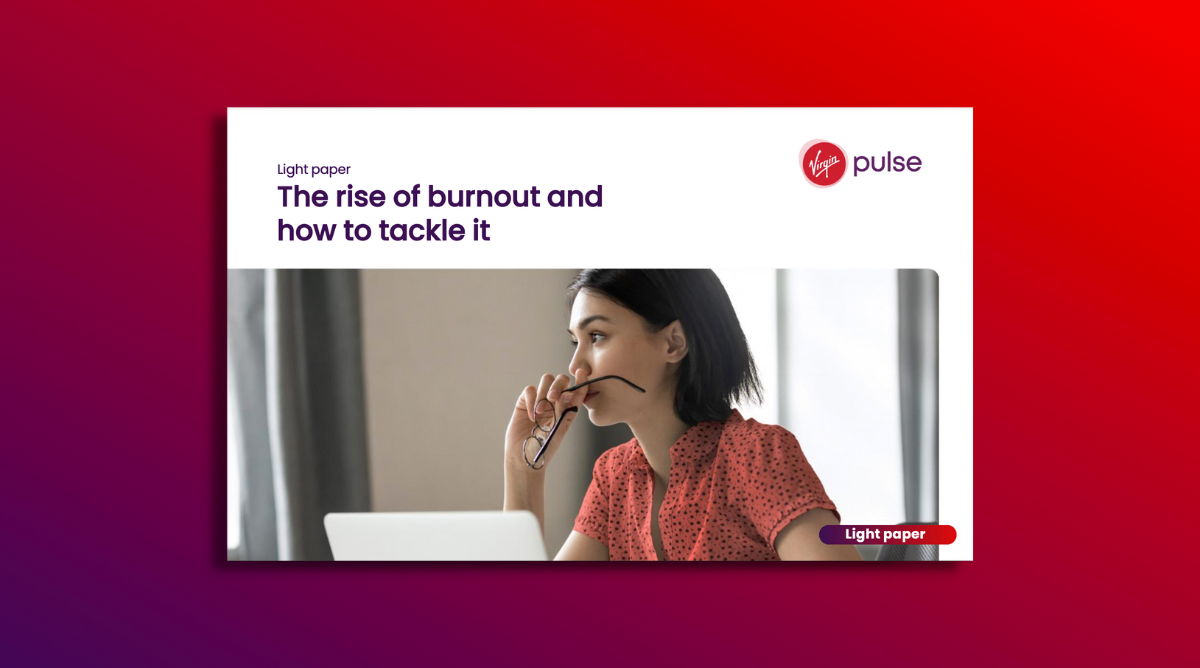Psychological Safety at Work Toolkit
The foundation of high-performing teams
Without it, employees are less likely to speak up, ask questions, or propose innovative solutions. Yet only about one-quarter of employees in a Workhuman survey reported feeling psychologically safe at work.
Does your company take proactive steps to promote psychological safety in the workplace? If not, you may be missing opportunities to engage with your employees and outperform your competition. We created this toolkit to help you get ahead.
The rise of burnout and how to tackle it
Burned out employees are 23% more likely to end up in the emergency room.¹ Burnout costs billions annually in healthcare costs, turnover, productivity, and more. How can we solve these issues? We created this light paper with actions to take now, and none more important than building psychological safety at work.

Ask the right questions
Safety, according to Maslow's hierarchy, is a basic human need. To support high-performing teams, creating psychologically safe work environments is critical. This is beyond only basic human decency, but employee retention.
So what does it mean and how to do it? Listen to Dr. David Batman, Virgin Pulse Science Advisory Board as he breaks it down for HR.com audience.
Mental health: Stop Solving, Start LEADing
Over the last few years, we saw an incredible evolution of destigmatizing mental health in the workplace, but there is still a lot to be done.
Audit, tax and consulting firm, RSM, and Virgin Pulse Science Advisory Board and mental health expert, Dr. David Batman, discuss how you can support your employees’ and their families’ mental health through leadership buy-in, encouraged open conversations, and more.
💡 A beginner’s guide to psychosocial safety in the workplace
5 actions employers can take to support their workforce
Health benefits of psychological safety at work
Voluntary turnover costs U.S. businesses a trillion dollars a year, and that was in 2019. Even greater today. In contrast, companies that engineer high psychological safety experience many benefits. Leading companies—Google, Gartner and Microsoft—have already identified psychological safety as the key element to unlocking team potential.
Accenture research shows that when employees are net better off, they are 5 times more likely to experience increased performance at work. And when performance is high, innovation follows.
27%
reduction in turnover
76%
more engagement
50%
more productivity
74%
less stress
29%
more life satisfaction
57%
workers more likely to collaborate
67%
higher probability that workers will apply a newly learned skill on the job
Sources: Gartner Research, The Missing Element in Nearly Every Learning Strategy; Gallup, State of the American Workforce Report; Zak, Paul J., “The Neuroscience of Trust,” Harvard Business Review, January 2017
Steps to create psychological safety at work:

1️⃣ Take a hard look at the psychological profiles of your leaders
The antiquated leader model is one that rewards people who set and achieve high financial targets, regardless of the human cost. Workers will move toward and with people managers who care about them and with whom they can team effectively to achieve performance, career goals, and work/life integration. In the long run, these leaders and the tools they use (such as wellbeing platforms) will increase the competitive position of your company's workforce.

2️⃣ Create team flow for high performance and innovation
Team flow implies sharing goals and risks where everyone is working toward the same end with a shared sense of trust and ownership. Autonomy, equal participation, and collaboration lead to higher quality decisions, while getting familiar with teammates' personalities, preferences, and abilities makes the blending of egos easier. Consider using a wellbeing challenge to bring people together on the journey to span work and life integration.

3️⃣ Adopt psychological safety analytics
Employee experience metrics, surveys, and round tables can prove to be the answer to most problems related to toxic leadership and declining psychological safety. At people-first organizations, human safety, engagement, growth, and satisfaction at work can be measured in addition to financial outcomes. For example, C-Suite bonuses should be connected to the development, effective us, and sustainability of human capital, in addition to financial metrics.
How wellbeing supports psychological safety at work
Builds one inclusive culture
Wellbeing helps create an environment where every employee feels supported and motivated to succeed - meeting them where they are today to create a sense of belonging, safety, and security on their journey.
Gives employees the tools for mental, physical, financial, social, emotional, and community health
Empower employees to prioritize themselves - reward and motivate participation in programs or actions that will reduce health risks, and costs, and improve the quality of their life and work.
Creates social connectedness & recognition
A robust wellbeing program ensures employees don't feel alone, but rather connected throughout all levels of the organization. From stress reduction challenges to recognition shout-outs, groups, and more fosters broader connections and sense of belonging.
Ready to learn more?
You Might Also Be Interested In

Psychological safety and the critical role of leadership development
While the benefits of psychological safety are well established, a new survey suggests how leaders, by developing specific skills, can create a safer and higher-performance work environment.

Tool: Foster psychological safety
To measure a team’s level of psychological safety, Amy Edmondson of Harvard created questions to understand how strongly employees agreed or disagreed with statements.

What psychological safety looks like in a hybrid workplace
Sorting out hybrid work arrangements will require managers to rethink and expand one of the strongest proven predictors of team effectiveness: psychological safety. The problem is, as the boundary between work and life becomes increasingly blurry, managers must make staffing, scheduling, and coordination decisions that take into account employees’ personal circumstances — a categorically different domain.
Be the employer of choice
Learn how people leaders everywhere transform their approach to health, wellbeing, benefits, and employee experience with Virgin Pulse.


